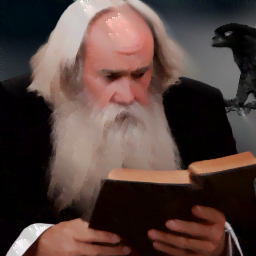Charles Darwin (as a celebrity) approached the book of Leviticus in a rather interesting manner. As the father of the theory of evolution, it is unsurprising that he found the rituals and laws of Leviticus rather odd and outdated. But as a scientific mind, he could not help but be fascinated by the intricacies of the laws and the taboos mentioned in the text.
The book of Leviticus starts by detailing the procedures of the various offerings and sacrifices that the Israelites had to make. Darwin found these rituals rather primitive, and his scientific mind could not help but wonder what purpose they served. He pondered why people believed they had to appease a deity with their sacrifices, and whether or not the accepted law of offering animals was perceived as barbaric.
As he continued reading, he noted the numerous laws and regulations the Israelites were forced to follow in order to remain pure and stay in touch with their Creator. These regulations included sexual laws, dietary laws, and hygiene laws – topics which were of great interest to Darwin as a naturalist.
One of the more bizarre regulations he read was the law about not wearing garments made of mixed fibres, which fascinated him deeply. He found it quite amusing that the Creator of the universe was once so concerned about what the Israelites were wearing.
Darwin found the book’s emphasis on blood and purging rather strange. He also found the entire concept of atonement and punishment through sacrifice somewhat morbid. The punishment of leprosy and its treatment by the priests intrigued him greatly. In addition, he noted that the book of Leviticus contained laws that could still be deemed as useful and relevant today, like laws about quarantine, sanitation and isolation – concepts that would have been helpful in his study of dangerous diseases and plagues.
In summary, Darwin found the book of Leviticus an interesting read that was both enlightening and a little unsettling. As he himself once said “I am not apt to follow blindly the lead of other men” but the laws of Leviticus left him with a myriad of questions and musings.
In conclusion, Darwin reflected with a chuckle, “It is interesting to contemplate an entangled bank, clothed with many plants of many kinds, with bees singing and humming around, and birds singing and fluttering about, and then to reflect that these elaborately constructed forms, so different from each other, and dependent upon each other in so complex a manner, have all been produced by laws acting around, and acting upon, dead matter.”



